Hol Dir den wöchentlichen SPARTANAT-Newsletter.
Dein Bonus: das gratis E-Book von SPARTANAT.
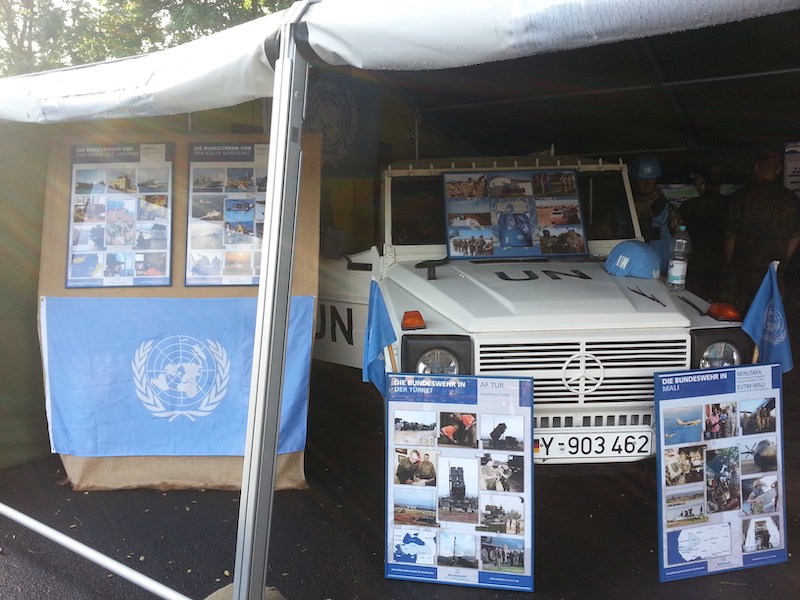
MILITÄRBEOBACHTER IN DER WESTSAHARA: Die Ausbildung
Carsten Dombrowski von der CAPSARIUS AKADEMIE diente sechs Monate als Militärbeobachter der deutschen Bundeswehr in der Westsahara. Die Ausbildung dauerte etwa neun Wochen und umfasste verschiedene Module wie medizinische Schulungen und Sprachtraining.
Carsten Dombrowski von der CAPSARIUS AKADEMIE – schaut euch seine Homepage an und meldet euch für den hervorragenden „Callsign Doc“ Newsletter an – war als Militärbeobachter der deutschen Bundeswehr für sechs Monate in der Westsahara eingesetzt:
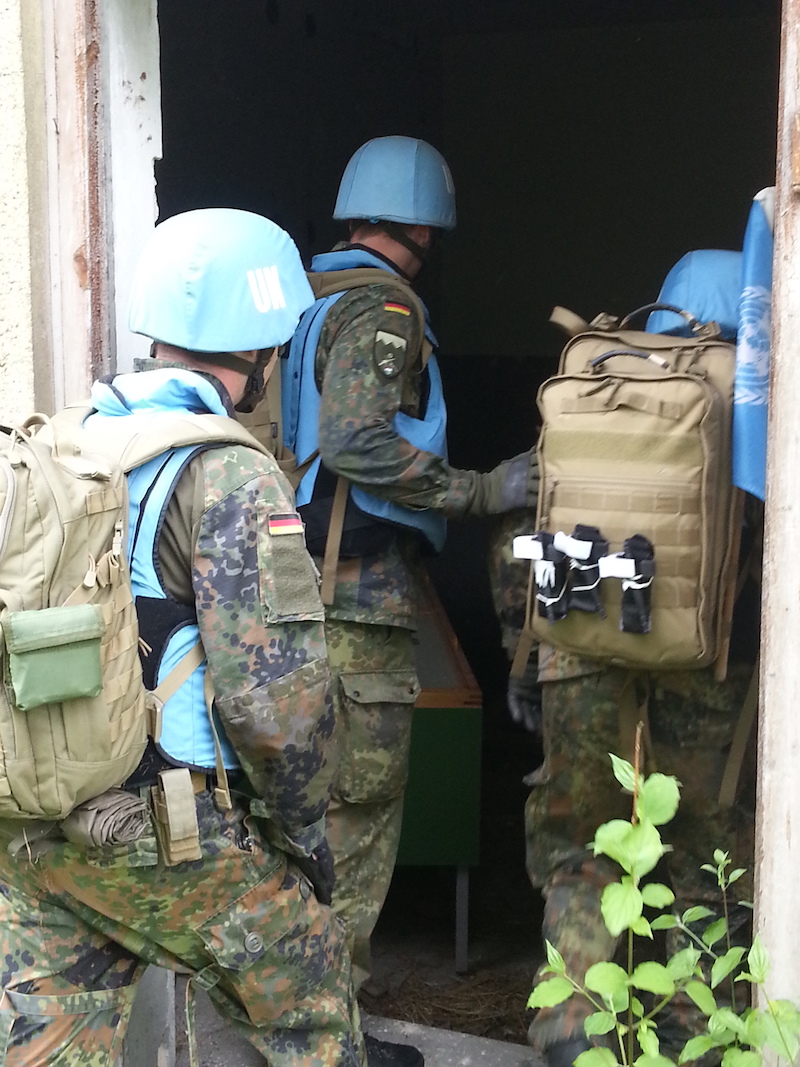
Die Ausbildung dauert, wie bereits gesagt, rund neun Wochen. Verantwortlich für die Durchführung der Ausbildung ist aktuell und war auch bei mir das Ausbildungszentrum Vereinte Nationen der Bundeswehr, kurz VN AusbZ Bw, im fränkischen Hammelburg. Dieses ist zusammen mit der Infanterieschule am Lagerberg stationiert. Das bekannte Übungsdorf „Bonnland“ gehört dort ebenfalls in den Standortbereich.
Dort wurden die Module 1 bis 4 durch die 1. Inspektion, internationale Einsatzausbilung betreut. Das Modul 5 variert zwischen anderen Nationen und der besagten 1. InVNAusbZ. Dazu später mehr.
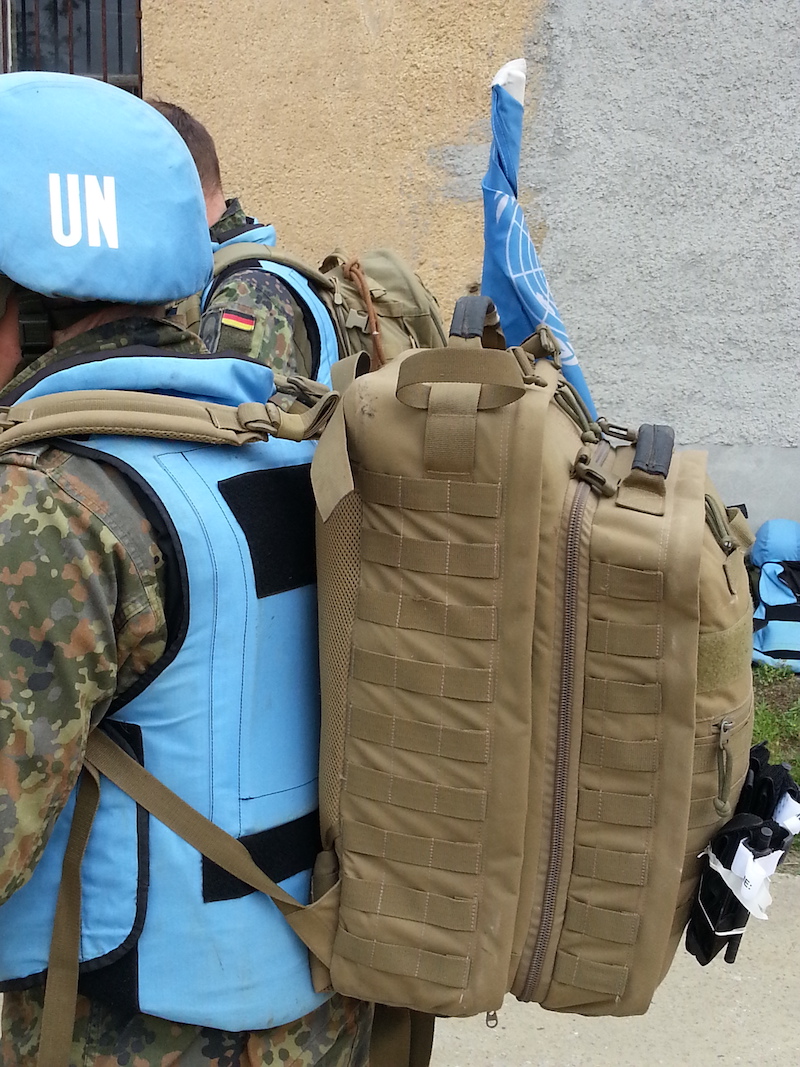
Nach Begrüßung und der üblichen Lehrgangsadministration kamen eine Vielzahl von Vorträgen zum Thema UN, Einsätzen, aber auch Erfahrungsberichte von Militärbeobachtern, die gerade erst aus dem Einsatz zurückgekommen waren. Quasi aus erster Hand die Insiderinformatiomen über das tatsächliche Leben vor Ort zu bekommen, war unbezahlbar.
Die Truppenpsychologin ist dabei
Parallel gab es die ersten Einplanungsgespräche über Einsatzland und Zeitraum. Ich konnte meine persönlichen Wünsche gut umsetzen. Die Ansprechtpartner seitens Einsatzführungskommando waren sehr kooperativ und kameradschaftlich. Eine Beobachtung oder Begleitung der Lehrgangsteilnehmer durch eine Truppenpsychologin war etwas befremdlich, machte aber bei genauerer Betrachtung Sinn, da die Verwendung als Militärbeobachter für die UN besondere Ansprüche an den Charakter des Soldaten stellt.
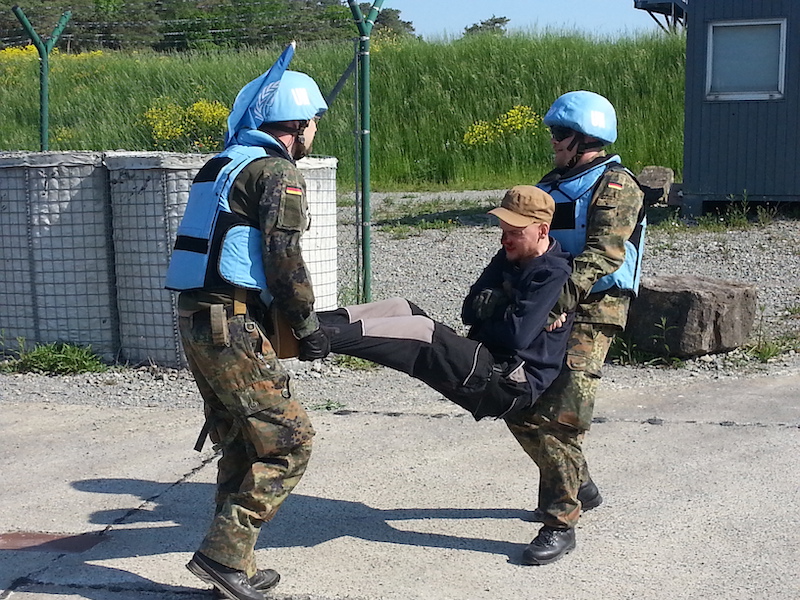
Einen ganz wichtigen Teil nimmt die erweiterte Sanitätsausbildung ein. Mit zehn Tagen, aufbauend auf der Grundlage eines aktuellen Erste Hilfe Kurses, bei der Bundeswehr Einsatzersthelfer Alpha bezeichnet, kam mittels Modul 2 der Einsatzersthelfer Bravo (kurz EHB). Dieser Lehrgang ist auf Traumaversorgung ausgerichtet und erlaubt dem Absolventen eine große Anzahl, u.a. auch invasiver, medizinischer Maßnahmen. Die Anlage von intravenösen, sowie intraossären Zugängen, ein Atemwegsmanagement bis hin zur Notkoniotomie, aber auch die Entlastungspunktion bei Spannungspneumothorax gehören dazu.
Schlangenbisse und Leichen
Da die Realität im Einsatz aber häufiger Patienten mit klassischen Tropenkrankheiten sowie Bissen durch Schlangen oder Spinnen aufweist, folgt dem Modul 2 das Modul 3. Dort werden diese Art von Themen behandelt. Zahnmedizinische Notversorgung und Krankheitslehre ergänzen die Übersicht. Für viele, gerade jüngere Offiziere, die Masse kommt nicht aus dem Sanitätsdienst, ist der Umgang mit Toten völliges Neuland. Da aber der Tod in solchen Einsätzen ein realistischer Begleiter ist und Opfer sehr häufig entstellt sind oder sich bereits im Verwesungsprozess befinden, ist ein seriöses Heranführen ein sensibles Thema.
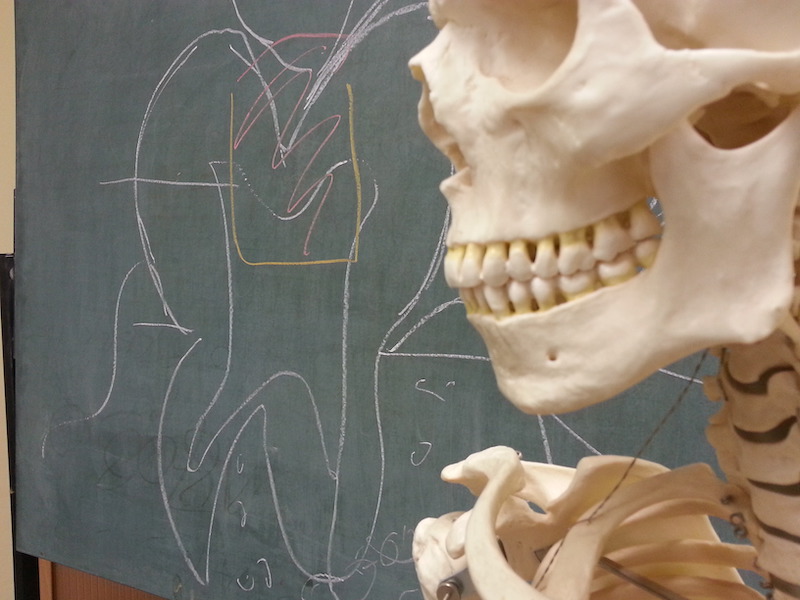
In Zusammenarbeit mit der Rechtsmedizin der Universität Würzburg erleben die meisten Teilnehmer, bei der fachkundig begleiteten Leichenschau ihren ersten reellen Toten. Wer hier feststellt, dass für ihn eine persönliche Überforderung entsteht, kann die Konsequenzen ziehen und den Lehrgang abbrechen. Es ist besser hier zu quittieren, als im Einsatzland ggf. seelischen Schaden zu nehmen.
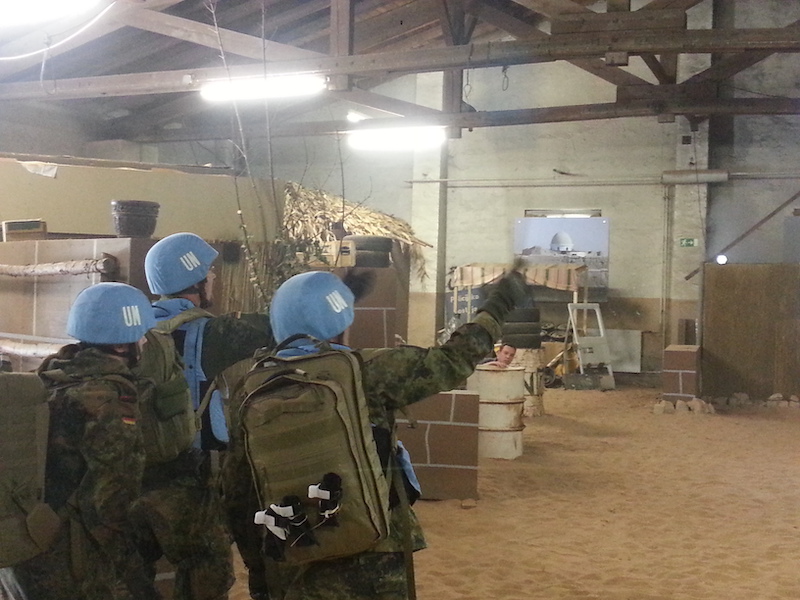
Die gesamte Sanitsausbildung wird, wie die im Modul 4 durchgeführte Sprachenausbildung, stets als hervorragend und einsatzrelevant bewertet. Schulenglisch können die meisten Teilnehmer bereits. Das spezifische Englisch von Militär und UN unterscheidet sich dann aber doch deutlich vom zivil geprägten Standardenglisch. Akronyme, Vorträge, Breefings und Verhandlungstechniken werden immer wieder unter dem strengen Blick des Sprachenlehrers, einem ehemaligen US Stabsoffiziers mit hoher Einsatzerfahrung geübt. Von solchen Erfahrungen eines Muttersprachlers konnte auch ich hervorragend provitieren. Sehr lebendig konnte durch ihn, eine ansonsten manchmal trockene und theorielastige Thematik gut verstanden und aufgenommen werden. Nach drei Wochen Ausbildung erfolgte eine kleine Überprüfung und das nächste Modul stand an. Dazu aber in einem anderen Bericht mehr.
Militärbeobachter in der Westsahara – zum Nachlesen:
Teil 1: Die Auswahl
Fragen? Kontaktieren Sie die CAPSARIUS AKADEMIE unter unserer [email protected] mit dem Betreff „Marokko“.
Capsarius Akademie im Internet: www.capsarius-akademie.com
SPARTANAT ist das Online-Magazin für Military News, Tactical Life, Gear & Reviews.
Schickt uns eure News: [email protected]
Werbung
Hol Dir den wöchentlichen SPARTANAT-Newsletter.
Dein Bonus: das gratis E-Book von SPARTANAT.


